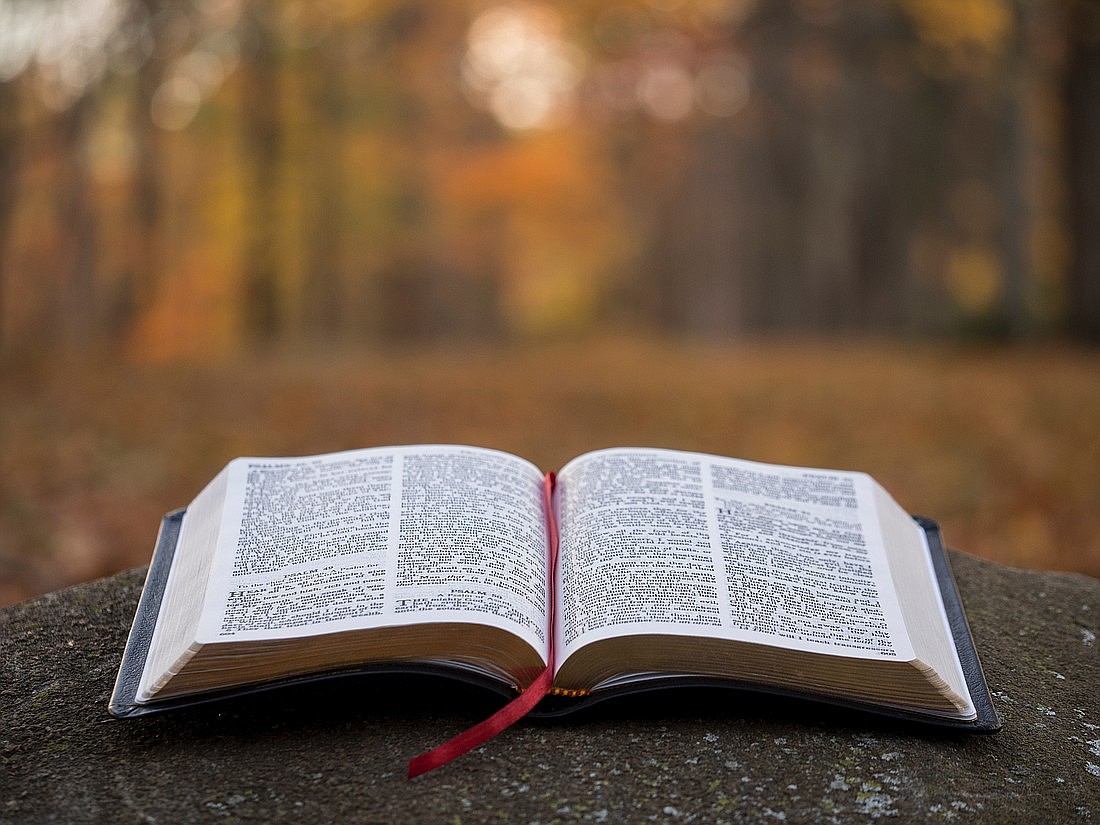August 7, 2024 at 9:14 a.m.
Not what, but who is the Eucharist?
We have been reading the Gospel at Mass over the past few Sundays from the sixth chapter of John’s Gospel, the “Bread of Life Discourse.” In these columns, we have begun a study of these Johannine inserts into the Marcan Gospel cycle and, to date, we have firmly placed this particular pericope into the first part of the Book of Signs in John’s Gospel.
I am the living bread that came down from heaven.
Whoever eats this bread will live forever.
— John 6:51
The words of the Word of Life Himself cause all who hear them to take a pause and to actually reflect on what He is exactly saying. When Jesus speaks of His Body and His Blood in this passage of scripture, He is not speaking in metaphors or through hyperbole or even describing the situation in an analogous state. No, He means what He says and He says what He means. The Eucharist, which we celebrate day after day on the altars of all the world’s churches and chapels, the Eucharist which is adored in all the tabernacles of the land, is His true Body and His true Blood.
Whether we use the 2024 Vinea Research study concerning Catholic belief in the Real Presence of Christ (69 percent state that they believe) or the 2019 Pew Research study (which stated only 31 percent of Mass-going Catholics believe that the bread and wine at Mass become the Body and Blood of Christ), this is still a shockingly low number of people who seem to understand the Church’s teaching on the Eucharist! Today, in light of the proclamation of the Bread of Life Discourse of John’s Gospel, let us examine the Church’s teaching on the Real Presence of Christ in the Eucharist.
Our prime source for this examination will be the Catechism of the Catholic Church, Part 2, Section 2, Chapter 2, Article 3, No. 1322-1419. We, as Catholics believe that, during the Mass, with the invocation of the Holy Spirit and the words of the Institutional Narrative (the words of consecration), at the hands of a validly ordained priest, the accidence of bread and wine are truly, substantially (meaning at its core, at its truest, deepest meaning) changed into the Body and Blood of our Lord and Savior, Jesus Christ.
Not merely symbolically, not merely a representation, Jesus Christ Himself is truly, substantially present in the Eucharistic species; His Body and His Blood, His soul and divinity are given to us so that we might share in the new and eternal life given to us. This concept is affirmed not only in the Catechism of the Catholic Church but also in the Council of Trent. We call this the doctrine of transubstantiation.
We, as Catholics share in the Bread of Life that Jesus describes in this sixth chapter of John’s Gospel. Every Eucharistic celebration is, once again, the Last Supper of the Lord. Every Eucharistic celebration is, once again, Christ’s sacrifice on Calvary. Every Eucharistic celebration is, once again, the resurrection of Jesus Christ from the dead. This is what we call the Paschal Mystery of the Lord.
The Eucharist, in which we are made one body in Christ, is “… the heart and the summit of the Church’s life …” (Catechism, 1407). The Church makes the Eucharist, and the Eucharist, in turn, makes the Church. It is the “source and summit” (Vatican II’s Lumen Gentium, 11) of the life of the Church. It is the most important, the highest worship we can give to God.
At the Mass, time and eternity meet. Heaven and Earth kiss. God and humankind are made one in the one, true sacrifice of Christ. As we are reminded in the Catechism of the Catholic Church, No. 1414, “As sacrifice, the Eucharist is also offered in reparation for the sins of the living and the dead and to obtain spiritual or temporal benefits from God.”
So, perhaps the question with which those Catholics were polled by Gallup all those years ago, “What is the Eucharist?” is not valid. The interrogative pronoun used is wrong. It should read, “Who is the Eucharist?”
Yes, the Eucharist, whose very name means “thanksgiving,” is indeed something for which we should be thanking God daily. His true and Real Presence is a gift. The Eucharist, simply put, is Jesus. It is a gift and a mystery.
- Tanzania’s Cardinal Pengo remembered as giant of faith, a ‘towering presence’ for Africa
- Bishops urge prudence, prayer, invoke Guadalupe’s protection as violence erupts in Mexico
- St. Francis’ relics open to public for first extended veneration in 800 years
- ‘We will grow in wisdom, holiness together,’ new bishop of Tucson, Ariz., tells faithful
- Pope renews ‘heartfelt appeal’ for ‘immediate ceasefire’ in Russia-Ukraine war
- Full text: Pope Leo XIV’s Angelus address given February 22, 2026
- God offers new possibilities, not prohibitions, with his invitation to love, pope says
- Find comfort, strength in Eucharist, pope tells attendees at LA Religious Education Congress
- Pope Leo XIV tells priests not to use AI to write homilies or seek ‘likes’ on TikTok
- Historical novel pitches Christian compassion against ideologies of hatred








Comments:
You must login to comment.